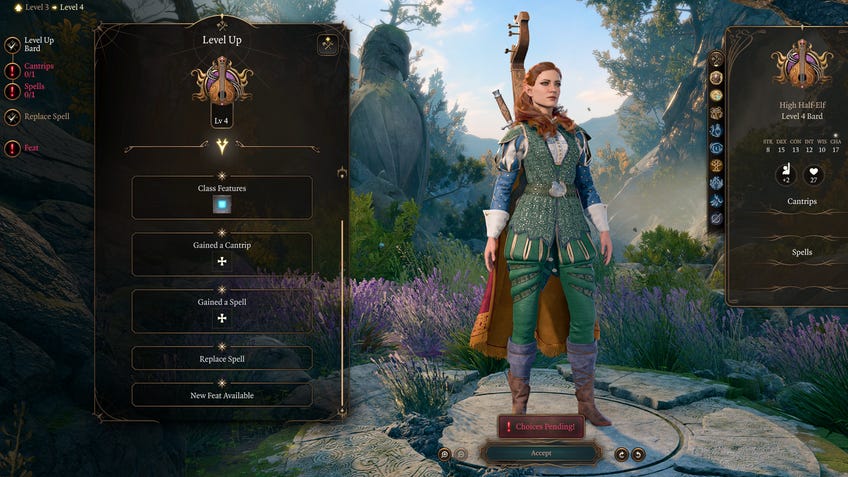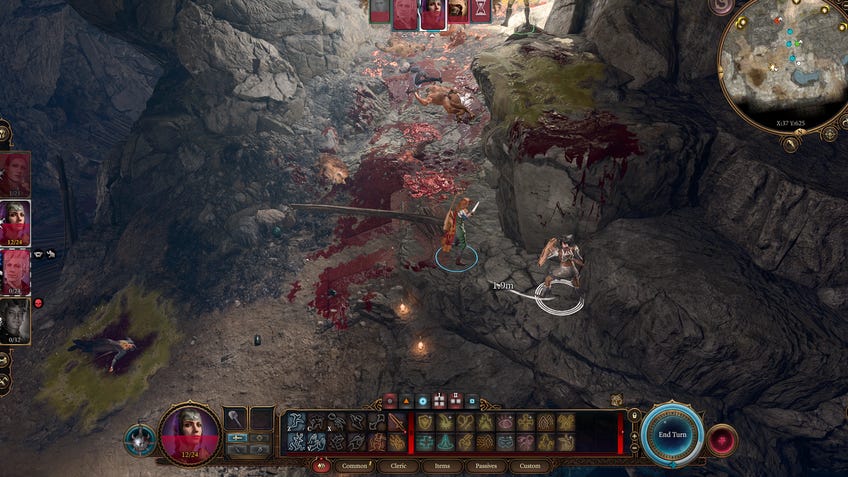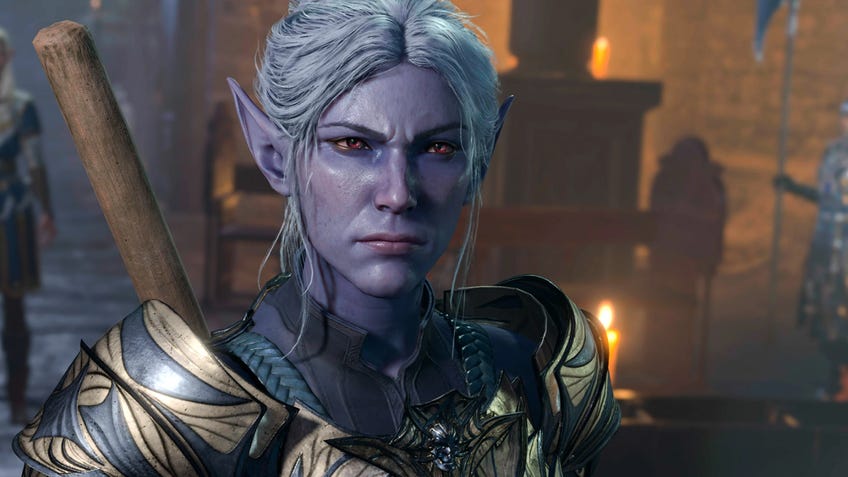Baldur’s Gate 3 has finally forced me to play D&D 5E by the rules
My shenanigans have been Silenced.
Baldur’s Gate 3 is an incredible facsimile of Dungeons & Dragons’ Fifth Edition. Its recreation of D&D 5E’s gameplay system and worldbuilding are exceptionally accurate. Fans of the tabletop roleplaying game would struggle to find another video game that provides such a faithful experience. Nevertheless, being a video game means that BG3 has limitations that the original D&D 5E does not - namely, a distinct lack of freedom when it comes to problem-solving and interacting with its world.
The advantages of playing Baldur’s Gate 3 over D&D 5E are many. Players don’t require other players or a dungeon master in order to play, with the video game functioning as both. The characters and world of BG3 have been written and created by professionals, rather than ordinary folks. The game automatically rolls ability checks and calculates modifiers for you, as well as streamlining processes like character creation and levelling up. No clunky maps. No fiddly miniatures. No unwanted interactions from players who don’t know how to behave around other people.
Despite all of these positives, however, Baldur’s Gate 3 suffers from one glaring negative when compared with playing the original tabletop RPG: it forces you to play within the system of D&D 5E to an even more restrictive degree than the tabletop game itself.

Going into Baldur’s Gate 3 with a mindset of not wanting to play Dungeons & Dragons 5E may seem strange considering the entire game is built around it. But it makes a lot of sense when you consider the benefits the video game offers that the tabletop game can only provide when the right people are playing it – a deeply compelling story, well-written characters, a richly-detailed world and, of course, unbelievably horny relationship options. It feels like having to use D&D 5E’s system is the compromise I have to make to experience all the aspects of the game I do like.
Many players attempt to circumvent these restrictions by playing their own versions of D&D 5E.
Don’t get me wrong, Dungeons & Dragons 5E is an efficient gameplay system, one that effectively supports character progression and combat encounters. Nevertheless, it’s always left something to be desired in terms of player freedom when compared with other tabletop RPGs. Whenever players want to do something, they have to perform an action that can be categorised into one of the game’s ability scores. While this makes it much easier for the DM to determine whether the player succeeds in their attempted action – asking the player to roll a d20 and adding any modifiers to see if they meet or surpass a number – it stifles creativity and options that don’t require an ability check.
Many players attempt to circumvent these restrictions by playing their own versions of D&D 5E, loosening things just enough to allow for more wriggle room – such as enabling players to do something during combat that isn’t an action specifically listed within the book, or not penalising someone for their character not being proficient in a skill. It’s a big reason as to why there are thousands of 5E-inspired RPGs that pick and choose aspects of the original tabletop RPG.
I’d argue that if you wanted a more flexible system then you should just play a different roleplaying game altogether – one that better suits your needs – rather than alter D&D 5E. But none of these options are available when it comes to Baldur’s Gate 3: it’s D&D 5E or nothing.
In some ways, it’s better to think of Baldur’s Gate 3 as being a roleplaying strategy game.
Furthermore, because of the limitations of being a video game – the programmers can only provide support for a set number of approaches – the restrictions of Dungeons & Dragons 5E’s ruleset become all the more apparent. While I would usually attempt to find some bullshit workaround during combat scenarios or situations to which my character is not-well suited in D&D 5E, this simply isn’t possible most of the time in BG3.

The desire to find a clever alternative to a problem is one of the main reasons why I often play a bard character, because their utility makes it a lot easier. My favourite moments in BG3 so far have come from being able to persuade my way through situations that might have otherwise resulted in combat. Convincing three guards in a row that my goblin fugitive friend was permitted to leave the camp, warning two cowardly tieflings that a githyanki army is approaching or spooking a gang of bandits with threats of an imaginary monster to gain access to an old ruin. All of these moments felt rewarding and entertaining in a way that regimented combat encounters sometimes don’t.
In some ways, it’s better to think of Baldur’s Gate 3 as being a roleplaying strategy game, rather than a D&D 5E game, as that allows it to be its own thing instead of comparing it directly to a tabletop RPG. Though there are moments where I’m frustrated by how restricted my options are, especially during combat, BG3 is still an excellent video game that is at its best when it’s not being D&D 5E.


